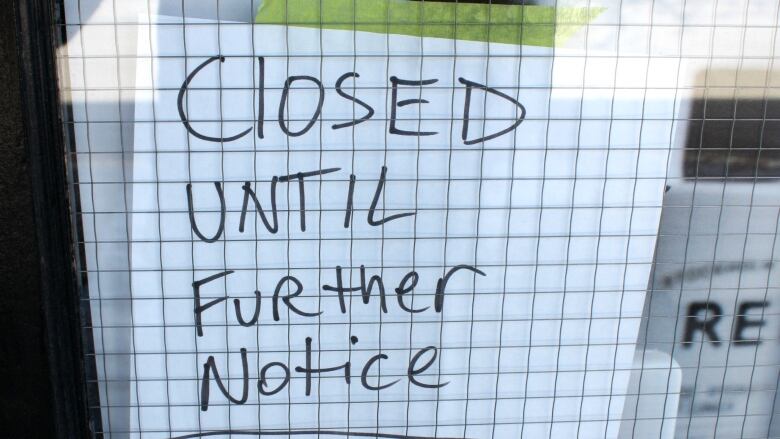What you need to know about COVID-19 in Alberta on Wednesday, April 22
Health officials credit Canadians with preventing a larger crisis, but warn against a rush back to normal

The latest:
- On Wednesday, 306 more cases of COVID-19 were reported in Alberta, bringing the total to 3,401.
- Five more Albertans have died, bringing the total deaths to 66.
- An inspection that allowed the High River Cargill plantto remain open, was done by video call. The meat plant is the location of Canada's largest outbreak linked to a single site, with 580 cases stemming from the worksite.
- OHS is now investigating outbreaks at that plant, and the JBS plant in Brooks which is linked to 96 cases.
- Alberta reported its first case on a First NationWednesday. One person on Sucker Creek First Nationhas tested positive. The First Nation is also dealing with flooding.
- Alberta is sending more medical supplies to Quebec, where more than 1,300 people are in hospital.
- Alberta's chief medical officer of health has warned against complacency and a rush back to normal.
- Four people have died from COVID-19 at the Clifton Manor nursing home in Calgary.
What you need to know today in Alberta:
With a combination of a prolonged shutdown that has managed to prevent the worst of the pandemic and the arrival of warmer weather, Dr. Deena Hinshaw is warning Albertans not to become complacent and risk a greater crisis.
She said on Wednesday that there will need to be declining case numbers and hospitalizations for weeks before talks of reopening.
Alberta reported 306 new cases on Wednesday afternoon.
A total of1,310 people have recovered and108,521 people tested.
The regional breakdown of cases as of Wednesday was:
- Calgary zone:2,396.
- Edmonton zone: 451.
- South zone: 303.
- North zone: 150.
- Central zone: 79.
- Unknown zone: 22.
The Calgary zone has been hardest hit, with about 71 per cent of the province's cases reported there.
What you need to know today in Canada:
The federal government announced a $9-billion aid package for post-secondary students on Wednesday morning. Students will be eligible for $1,250 per month from May through August and up to $1,750 if that student is taking care of someone with a disability.
Overall, the message from Ottawa was much the same as the one delivered in Edmonton on Tuesday: stay the course, use caution as the situation evolves.
Canada's top health official, Dr. Theresa Tam, said the actions and sacrifices of Canadians have managed to hold off a crisis like thoseseen in New York and Italy.
WATCH: What happens after Canadians flatten the curve:
Tam said Tuesday that health officials across the country are closely monitoring for "continued and stable slowing of the epidemic" as they plan for what comes next. But that easing of restrictions and return to normal is "still a ways off."
As of 6p.m. ET, there were 2,074COVID-19-related deaths in Canada, plus two reported COVID-19-linked deaths of Canadians abroad, according to aCBC News tallybased on provincial and local health data, as well as CBC reporting.
There are 40,190 confirmed and presumptive cases, and 13,994resolved cases among the provinces and territories that make such data public.
Self-assessment and supports
Alberta Health Services has an online self-assessment tool that you can use to determine if you have symptoms of COVID-19.
WATCH: How to physically distance in tricky situations:
The province says Albertans who have returned to Canada from other countries must self-isolate. Unless your situation is critical and requires a call to 911, Albertans are advised to call Health Link at 811 before visiting a physician, hospital or other health-care facility.
If you have symptoms, even mild, you are to self-isolate for 10 days from the onset of symptoms.
You can find Alberta Health Services' latest coronavirus updates here.
The province also operates a confidential mental health support line at 1-877-303-2642 and addiction help line at 1-866-332-2322,available from 7 a.m. to 11 p.m., seven days a week.
Online resourcesare available foradvice on handling stressful situations and ways to talk with children.
There is a24-hour family violence information line at 310-1818 to get anonymous help in more than 170 languages, and Alberta's One Line for Sexual Violence is available at 1-866-403-8000, from 9 a.m. to 9 p.m.














_(720p).jpg)


 OFFICIAL HD MUSIC VIDEO.jpg)
.jpg)



























































































